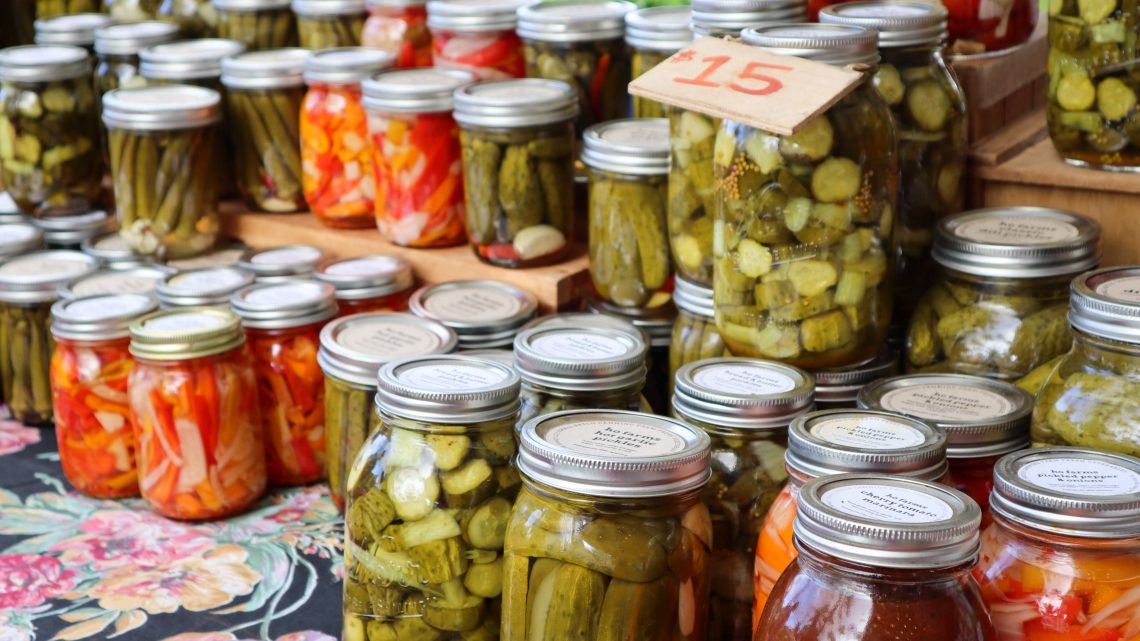Nurturing Your Gut with the Power of Fermentation
Incorporating fermented foods into your diet can be a game-changer when it comes to maintaining a healthy gut. Fermented foods are rich in beneficial bacteria, probiotics, and enzymes that can support digestive health and contribute to a balanced gut microbiome. In this post, we’ll explore the best-fermented foods for gut health and answer some common questions about them.
Which Fermented Food is Best for Gut Health?
While there’s no single “best” fermented food for gut health, a variety of options can provide different strains of beneficial bacteria. This diversity can enhance the overall health of your gut microbiome. Keep reading to discover the top 10 fermented foods you can include in your diet.
Top 10 Fermented Foods for Gut Health:
- Sauerkraut: Sauerkraut is a classic fermented cabbage dish that is rich in vitamins, fibre, and probiotics. It’s made through a process of lacto-fermentation.
- Kimchi: Similar to sauerkraut, kimchi is a Korean staple made from fermented vegetables, primarily napa cabbage and Korean radishes. It’s spicier and has a unique flavour profile.
- Kefir: Kefir is a fermented dairy product that contains a diverse range of probiotics. It’s made by fermenting milk with kefir grains, resulting in a tangy, drinkable product.
- Yoghurt: Another dairy-based option, yoghurt is a well-known source of probiotics that promote gut health. Look for varieties with live and active cultures.
- Kombucha: Kombucha is a fermented tea beverage that offers probiotics and a refreshing taste. It’s made by fermenting sweetened tea with a SCOBY (symbiotic culture of bacteria and yeast).
- Miso: Miso is a traditional Japanese paste made from fermented soybeans. It’s commonly used in soups and sauces and adds a savoury umami flavour.
- Tempeh: Also derived from soybeans, tempeh is a firmer textured product that’s rich in protein and probiotics. It’s often used as a meat substitute.
- Pickles: Naturally fermented pickles are cucumbers fermented in brine and spices. Opt for products that are not vinegar-based for the most probiotic benefit.
- Lassi: Lassi is a yoghurt-based drink popular in Indian cuisine. It’s often flavoured with fruits or spices and offers a dose of probiotics.
- Fermented Cheeses: Certain types of cheeses, such as Gouda and cheddar, undergo a fermentation process that can introduce probiotics into your diet.
Best Fermented Foods to Eat Every Day:
For daily consumption, consider incorporating the following five fermented foods into your meals:
- Yoghurt
- Kefir
- Sauerkraut
- Kimchi
- Kombucha
Who Shouldn’t Eat Fermented Foods?
While fermented foods offer numerous health benefits, some individuals might need to exercise caution:
Histamine Sensitivity: Fermented foods can be high in histamines, which might trigger adverse reactions in individuals with histamine sensitivity.
Underlying Health Conditions: People with severe digestive disorders should consult a healthcare professional before adding fermented foods to their diet.
Sauerkraut and Kimchi: A Brief Introduction:
Sauerkraut is a German dish made by fermenting finely sliced cabbage with lactic acid bacteria. It’s tangy and often used as a condiment. Kimchi, on the other hand, is a Korean delicacy made by fermenting vegetables with a blend of seasonings, including chilli powder. It has a spicy, savoury flavour and is a staple in Korean cuisine.
Recipe: Homemade Kefir
Kefir is a versatile fermented dairy product that’s easy to make at home. Here’s a simple recipe using UK measurements:
Ingredients:
- 1-litre whole milk
- 2 tablespoons kefir grains
- A glass jar
- Non-metal stirring utensil
Instructions:
- Place the kefir grains in a glass jar.
- Pour the whole milk into the jar.
- Stir gently with a non-metal utensil.
- Cover the jar with a clean cloth and secure it with a rubber band.
- Let the mixture sit at room temperature (around 18-25°C) for about 24-48 hours. The longer it ferments, the tangier it will become.
- After fermentation, strain out the kefir grains and transfer the liquid to another clean jar for storage.
- Refrigerate the kefir and enjoy it chilled.
Incorporating fermented foods into your diet can contribute to a healthier gut and overall well-being. Experiment with different options to find the ones that suit your taste preferences and dietary needs. Remember, moderation is key, and if you have any health concerns, consult a healthcare professional before making significant dietary changes.










